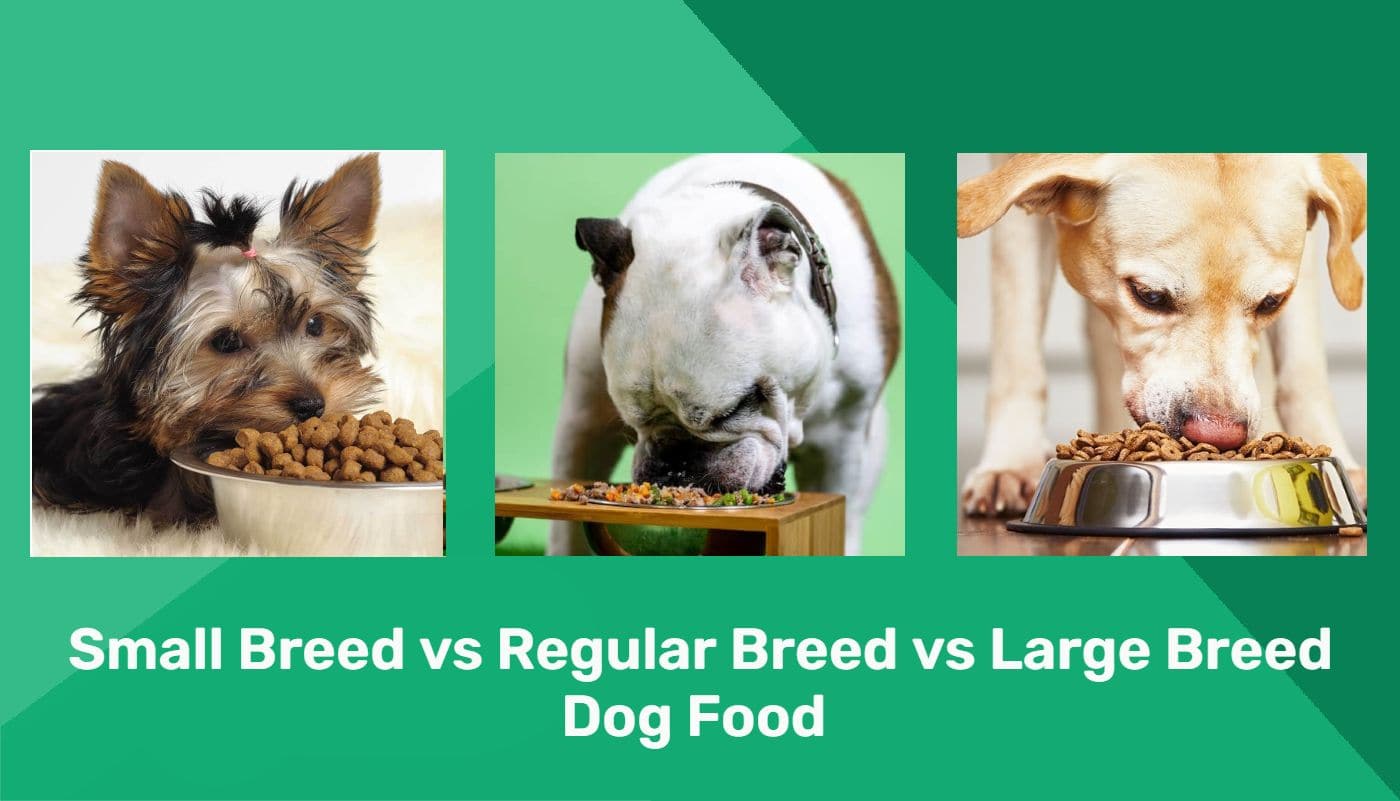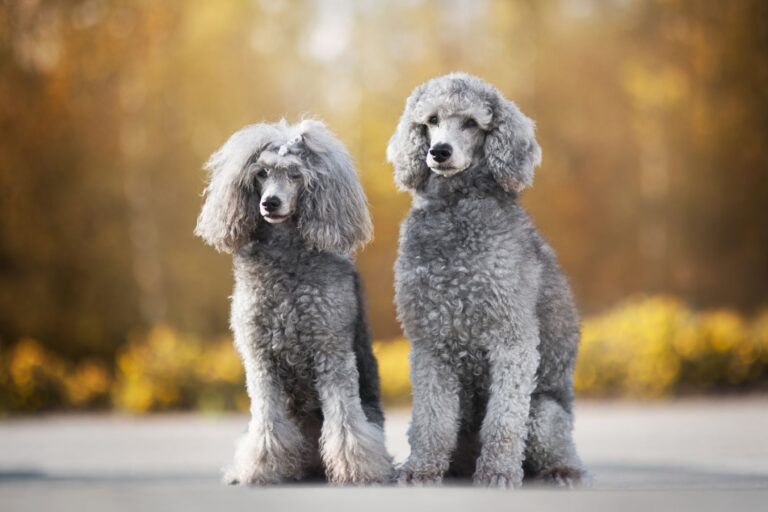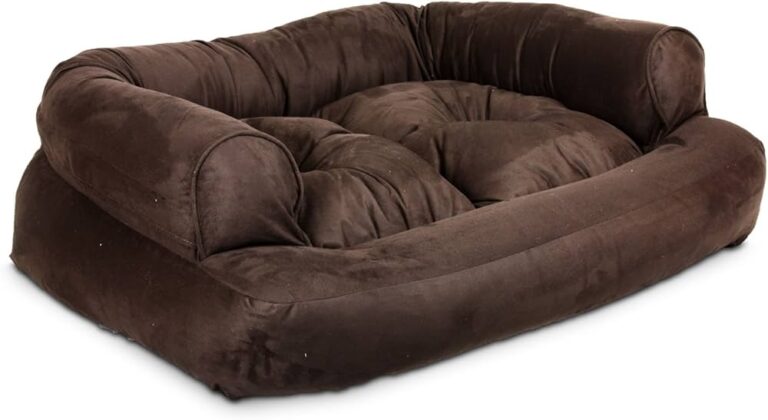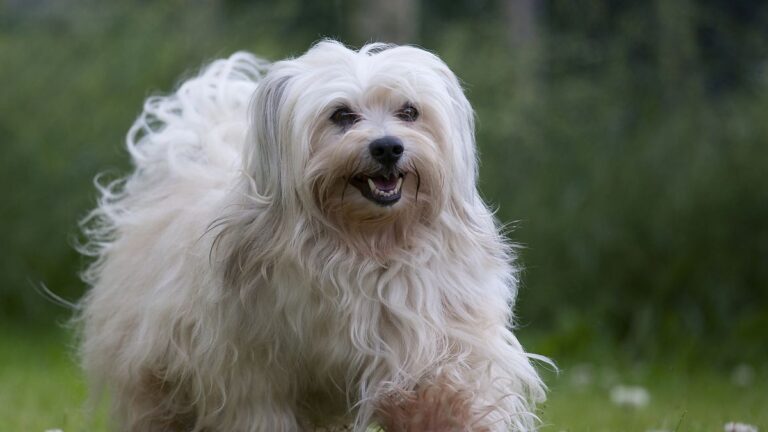What Is the Difference: Large Breed Dog Food vs Regular
Last Updated on April 28, 2024 by Petpalace54
Large breed dog food is formulated to match the specific nutritional needs of larger dogs while regular dog food is suitable for small and medium-sized dogs. Large breed dogs require a different nutrient balance to support their bone & joint health as well as their overall growth and maintenance.
What Is the Difference: Large Breed Dog Food vs Regular? Choosing the right type of food for your dog is crucial to their health and wellbeing. Large breed puppy food, for example, should have less calcium content compared to regular puppy food to prevent overgrowth, joint & bone problems. We will delve deeper into the differences between large-breed dog food and regular dog food, explore the nutritional requirements of large breed dogs, and consider the most appropriate feeding strategies.
Credit: www.quora.com
Table of Contents
What Are Large Breed Dogs
Choosing the right type of dog food is crucial for large breed dogs. Large breed dog food is specially formulated to meet their unique dietary needs, including a balance of nutrients to support their joints, muscles, and bones. Regular dog food may not provide the same level of nutrition for large breed dogs.
What are Large Breed Dogs?
Large breed dogs are those that generally weigh over 50 pounds when fully grown. These breeds require a specific type of nutrition to support their growth and development. Feeding regular dog food to large breeds can lead to inadequate nutrition, which may result in health issues such as bone & joint problems, and obesity.
Golden Retriever
A Golden Retriever is a large breed dog that requires a diet tailored to their unique needs. This breed is known for its love of food and is prone to becoming overweight if overfed. Feeding them large breed dog food provides them with the right balance of calories to maintain a healthy weight.
Bernese Mountain Dog
The Bernese Mountain Dog is a gentle giant that needs a diet containing a good balance of nutrients to maintain their muscle mass & support their active lifestyle. Feeding them high-quality large breed dog food ensures that they get the necessary vitamins and minerals to keep them active and healthy.
Great Dane
The Great Dane is the largest of all dog breeds, and they require a diet high in protein and fat to support their muscle mass. Feeding them large-breed dog food aids in reducing the risk of gastric torsion, a condition common in this breed.
Anatolian Shepherd Dog
The Anatolian Shepherd is a large breed dog developed for guarding livestock. They need a diet containing moderate levels of protein to maintain their muscle mass and low fat to prevent weight gain. A diet specifically formulated for large breed dogs is ideal for this breed.
Newfoundland
The Newfoundland is a gentle breed known for their loyalty and love of water activities. They require a diet containing a balance of nutrients to support their active lifestyle and maintain a healthy weight. Feeding them large breed dog food can help reduce the risk of joint problems and obesity.
St. Bernard
St. Bernard is a large breed of dog known for their calm temperament. They need a diet containing moderate levels of fat to ensure healthy weight gain. Feeding them large breed dog food can also help maintain joint and bone health.
In conclusion, feeding large breed dog food to your furry friend is vital in supporting their growth & development. As a responsible pet owner, it is important to provide your dog with the right nutrition to maintain their overall health and well-being.
Can You Feed Large Breed Food To A Small Or Medium Dog
Feeding large breed dog food to a small or medium dog is not harmful, but they won’t get the specific nutrition they require. Large Breed Dog Food vs Regular? Small breeds need more calories and nutrients per pound of body weight than larger breeds, and opting for a diet specifically formulated for their size will support their overall health and maintain their high metabolism.
Can You Feed Large Breed Food to a Small or Medium Dog
Small Breed Dogs:
Small breed dogs have a smaller bone structure, faster metabolisms, & higher energy levels than larger breeds. As a result, they require a higher calorie and nutrient-dense diet. Feeding them large breed dog food may not provide them with enough calories and nutrients to sustain their high metabolism, leading to health problems down the road. In addition, large breed dog food contains a lower calorie density, making it challenging for small breed dogs to meet their caloric requirements.
Medium Breed Dogs:
Medium breed dogs have moderate energy levels, making them susceptible to weight gain if given high-calorie food. It is crucial not to feed them a large breed of dog food designed specifically for their larger counterparts. Instead, it is recommended to opt for a diet formulated for medium breeds that provide the right balance of nutrients & calories for their moderate energy levels.
Overall, while it may not be harmful to feed small or medium breed dogs large breed dog food, it is best to opt for diets formulated for their specific breed size. Choosing a proper and well-balanced diet can help promote optimal development, growth, & overall health for your furry friend.
Best Large Breed Dog Food
Large breed dog food is specially formulated to meet the needs of bigger dogs, while regular dog food is meant for smaller breeds. Large breed food has fewer calories per cup, a lower calcium-to-phosphorus ratio, and more glucosamine & chondroitin for joint health.
Some top brands include Diamond Naturals and Blue Buffalo.
Best Large Breed Dog Food
Choosing the best dog food for your large breed dog can be a daunting task, especially with so many options available in the market. However, it is crucial to choose the right food to maintain their health and well-being. Large breed dogs have unique nutritional needs that require a diet specifically designed for them. Large breed dog foods are different from regular dog foods in terms of calorie content, protein content, & calcium-to-phosphorus ratio.
Orijen Amazing Grains Dry Dog Food
Orijen Amazing Grains Dry Dog Food is a top-rated option for large breeds. This premium dog food contains high-quality protein sources such as deboned chicken and turkey, whole eggs, and fish. It is enriched with glucosamine and chondroitin to maintain joint health and mobility. Moreover, the added fiber content helps to support healthy digestion.
Diamond Naturals Large Breed Adult Dog Food
Diamond Naturals Large Breed Adult Dog Food is another popular option among dog owners. This dog food is made with real cage-free chicken and other whole-food ingredients. It contains guaranteed levels of glucosamine and chondroitin to preserve joint health. Additionally, it is free from any artificial preservatives, colors, and flavors.
Purina ONE Plus Large Breed Adult Dog Food
Purina ONE Plus Large Breed Adult Dog Food is a veterinarian-recommended formula for large breed dogs. It comprises high-quality protein sources from real chicken and rice to meet the energy requirements of large dogs. This dog food contains added glucosamine to support joint health and mobility.
Purina Pro Plan Adult Large Breed Dog Food
Purina Pro Plan Adult Large Breed Dog Food is designed for active and athletic large breed dogs. It contains high-quality protein sources from real chicken, salmon, and rice to support muscle mass and energy requirements. This dog food contains glucosamine to support joint health and mobility.
Merrick Healthy Grains Dry Dog Food
Merrick Healthy Grains Dry Dog Food is a grain-inclusive option for large breed dogs. It contains a high level of protein from real deboned chicken, salmon, and turkey. This dog food is enriched with glucosamine and chondroitin for joint health and mobility. Additionally, the added prebiotic fiber supports healthy digestion and nutrient absorption.
Blue Buffalo Life Protection Formula Large Breed Dog Food
Blue Buffalo Life Protection Formula Large Breed Dog Food is a popular option made with wholesome ingredients. It contains real deboned chicken as the primary protein source and brown rice, barley, and oatmeal as complex carbohydrates. This dog food is formulated with glucosamine and chondroitin to support joint health and mobility.
In conclusion, choosing the right dog food for your large breed dog is crucial for maintaining their overall health and well-being. The above-mentioned options are among the best large breed dog foods available in the market. It is recommended to consult your veterinarian before making any dietary changes to ensure your dog’s specific nutritional requirements are met.

Credit: www.innovetpet.com

Credit: www.innovetpet.com
Frequently Asked Questions For What Is The Difference Between Large Breed Dog Food And Regular
Can I Feed Large Breed Dog Food To A Small Dog?
While it’s not harmful for small-breed dogs to eat large-breed food, it is not recommended. Small breed dogs need more calories & nutrients per pound of body weight than large breed dogs, and they will not get the specific nutrition they need from large breed food.
Opt for a diet specifically formulated for small breeds.
What Happens If I Give My Dog Large Breed Food?
Feeding large breed food to a dog can help prevent joint, muscle, and bone problems. Many large breed foods include the joint supplement glucosamine to improve orthopedic health. While it’s not harmful for small dogs to eat large breed food, they won’t get the specific nutrition they need.
It’s generally recommended to opt for a diet specifically formulated for medium breeds.
Can You Feed Large Breed Dog Food To A Medium Dog?
Although it is not harmful to feed a medium-sized dog large breed food, it is recommended to feed them a diet that is specifically formulated for medium breeds. Medium-sized dogs have different nutritional needs than large breed dogs. Therefore, it is best to choose a diet that provides the specific nutrition that is appropriate for your dog’s breed.
When Should I Switch My Dog To Large Breed Food?
Switching your dog to large breed food is recommended when they reach around 12-18 months of age or when they weigh around 50-60 pounds. Large breed food contains fewer calories, less fat, and more calcium & phosphorus to support healthy bone growth.
It is not harmful to feed large breed food to a medium-size dog, but it is recommended to choose a diet specific for medium breeds.
Conclusion
To summarize, it is important to understand What Is the Difference: Large Breed Dog Food vs Regular dog food differ in terms of calorie levels, nutritional density, and kibble size. Large breed dog food is specifically formulated to meet the unique nutritional needs of larger dogs, including the prevention of joint, muscle, and bone issues.
While it may not be harmful to feed a medium-sized dog large breed food, it is generally recommended to opt for a diet specifically formulated for medium breeds. By selecting the right type of food for your dog, you can help support their overall health and wellbeing.




